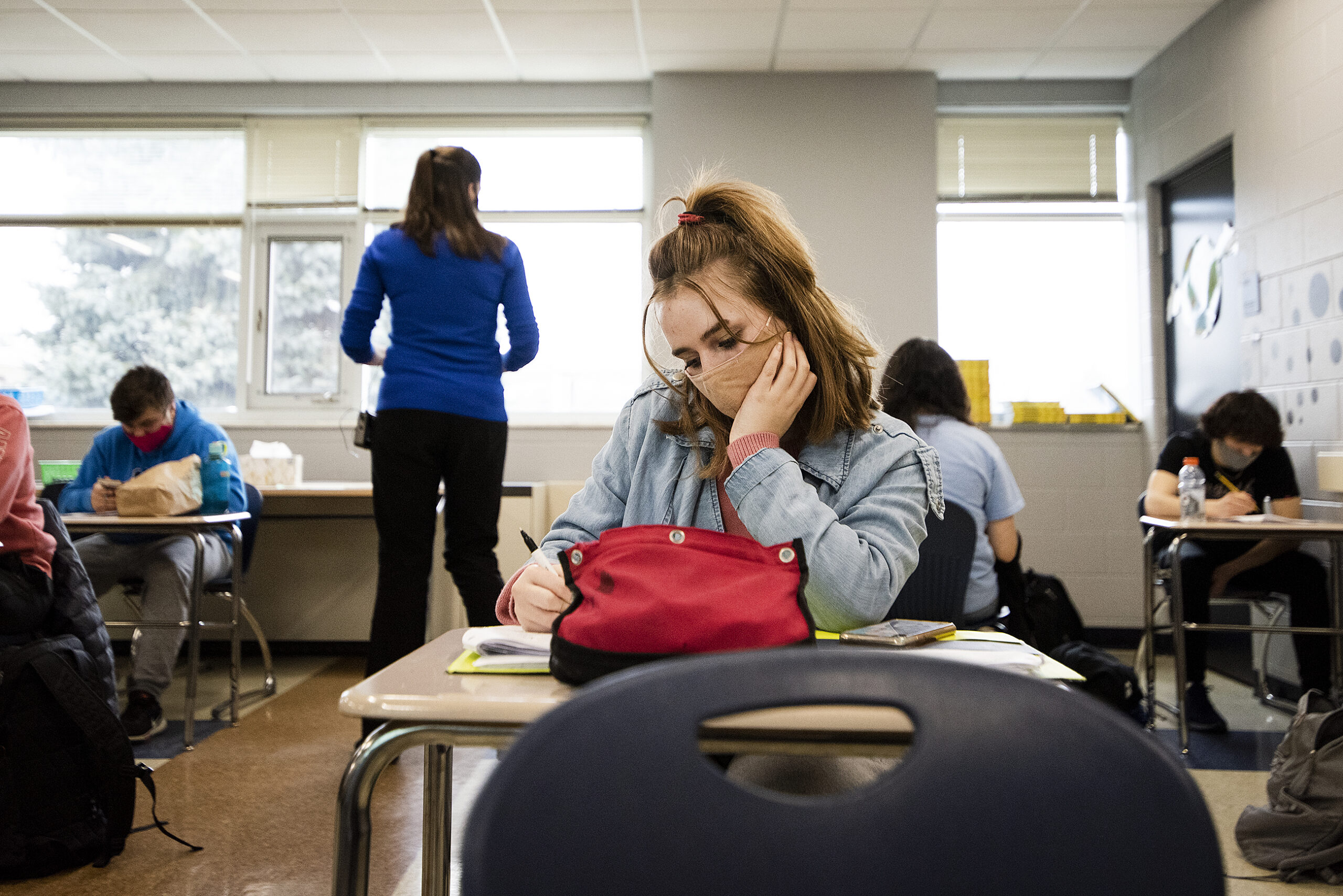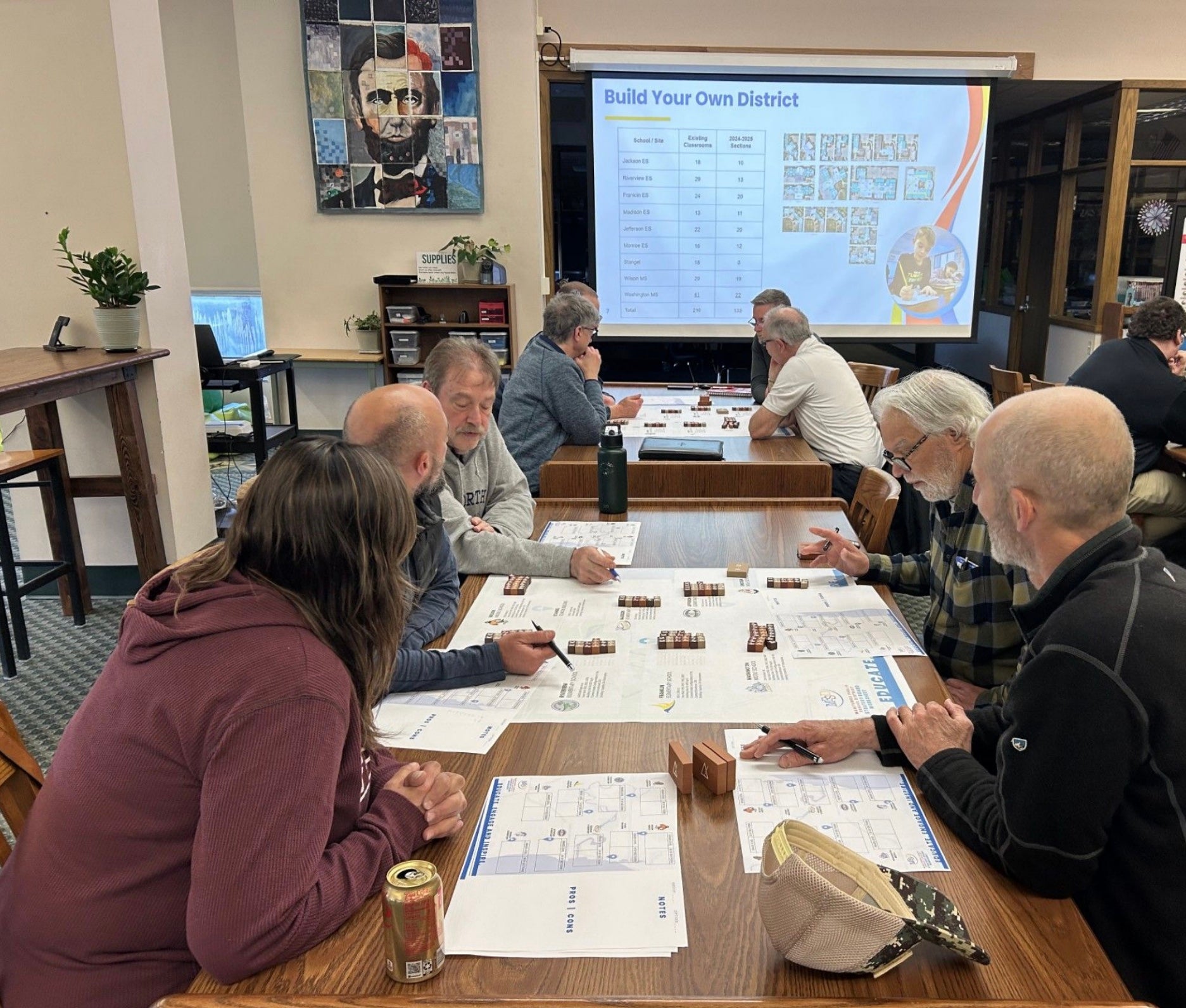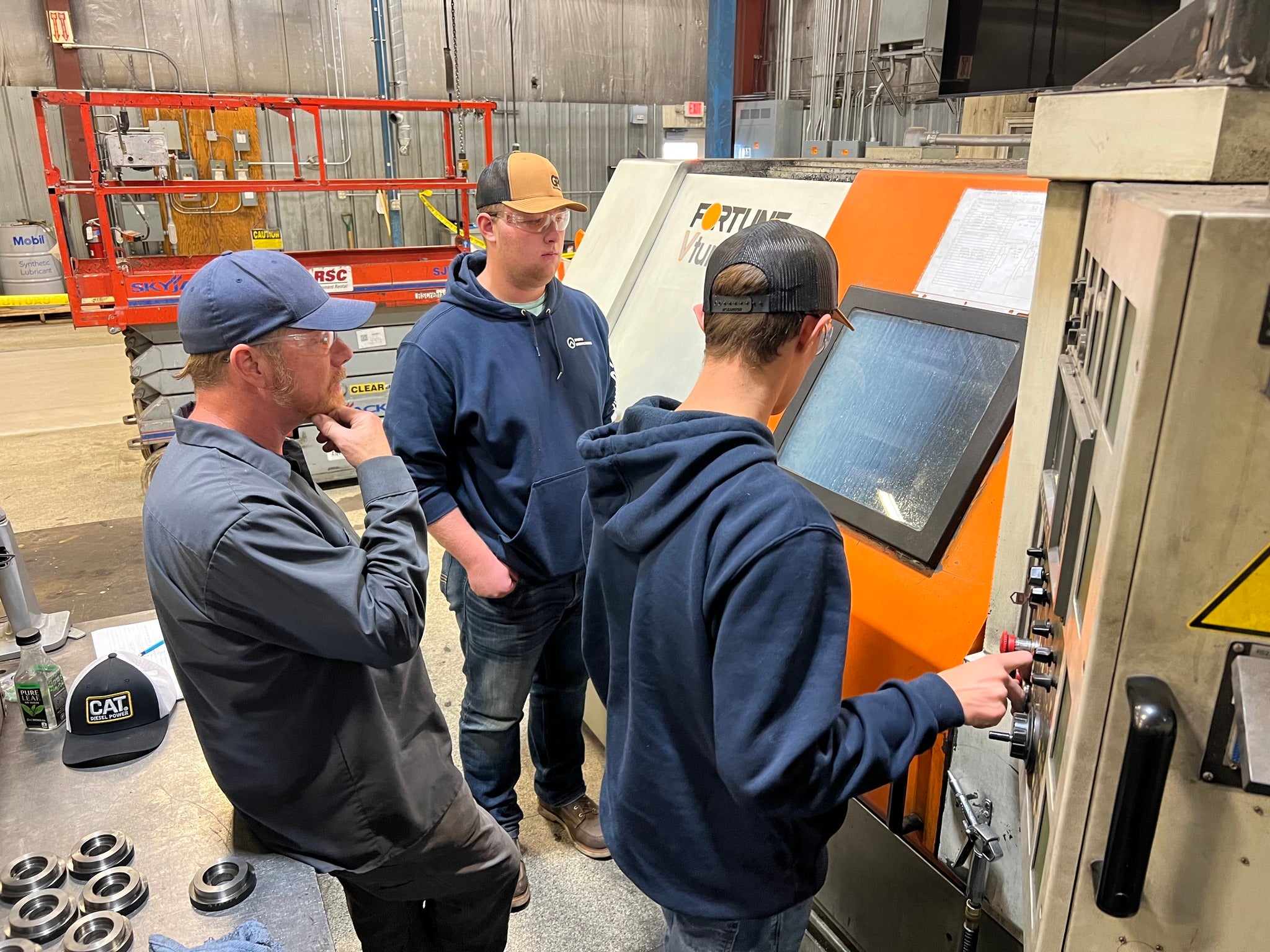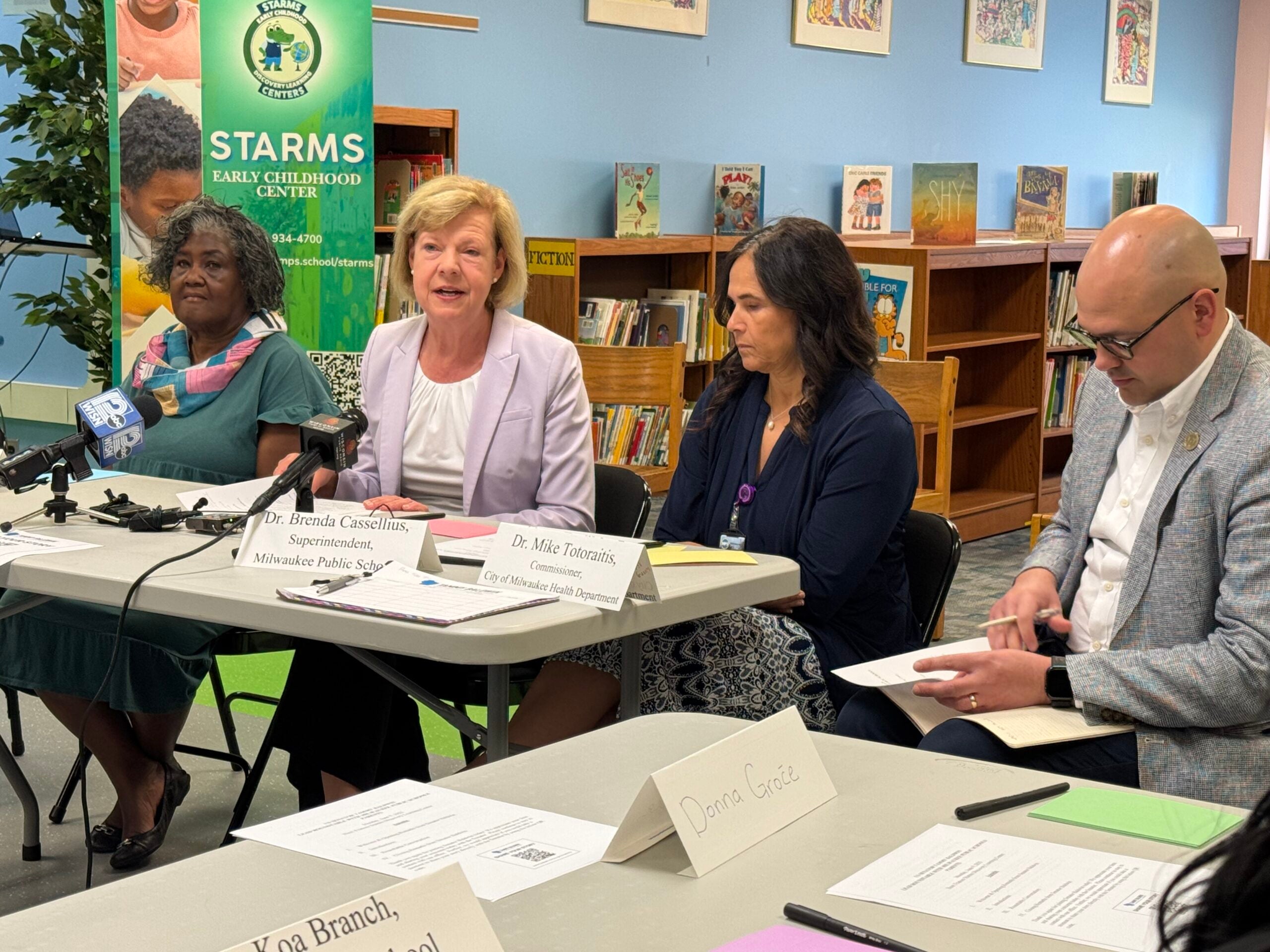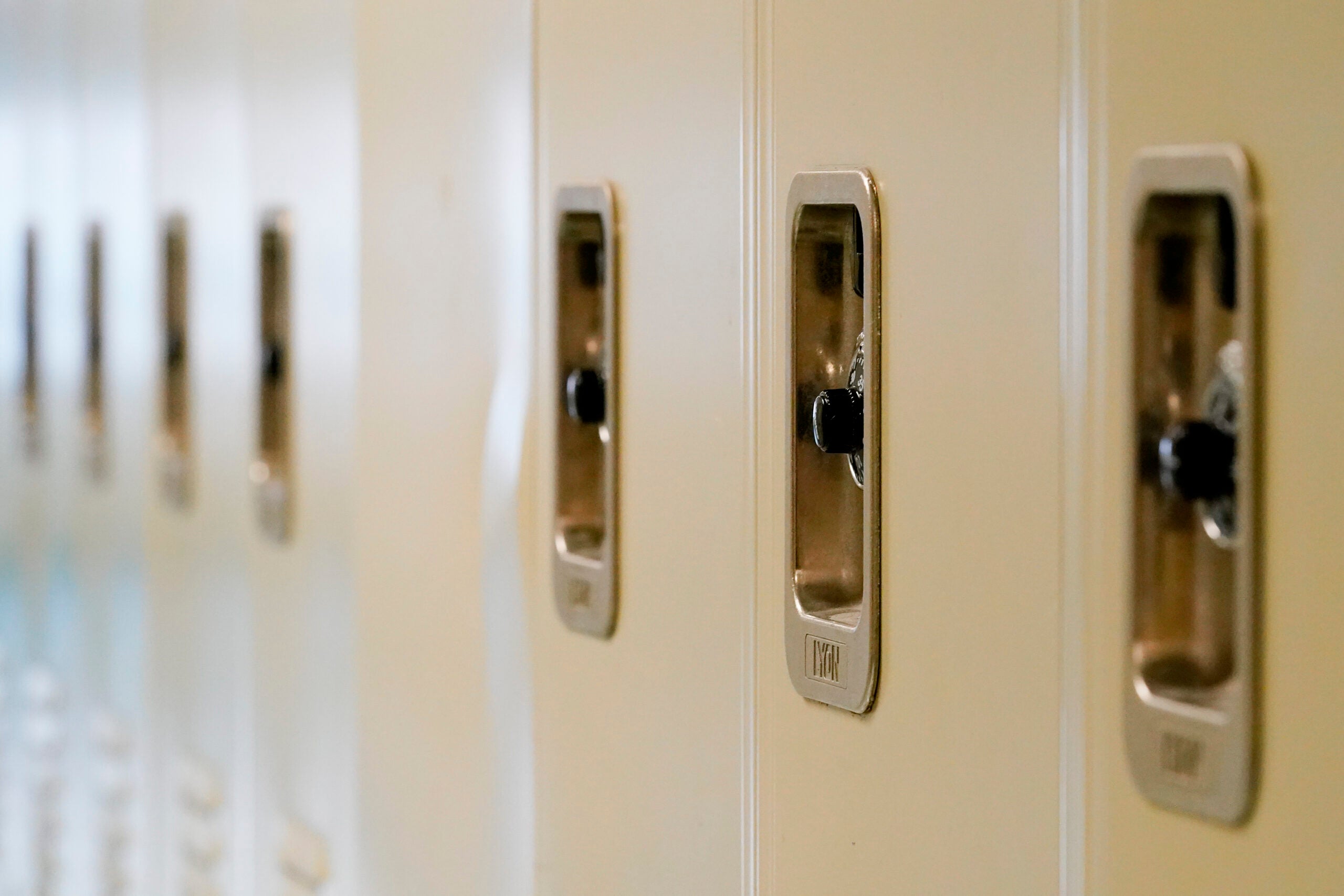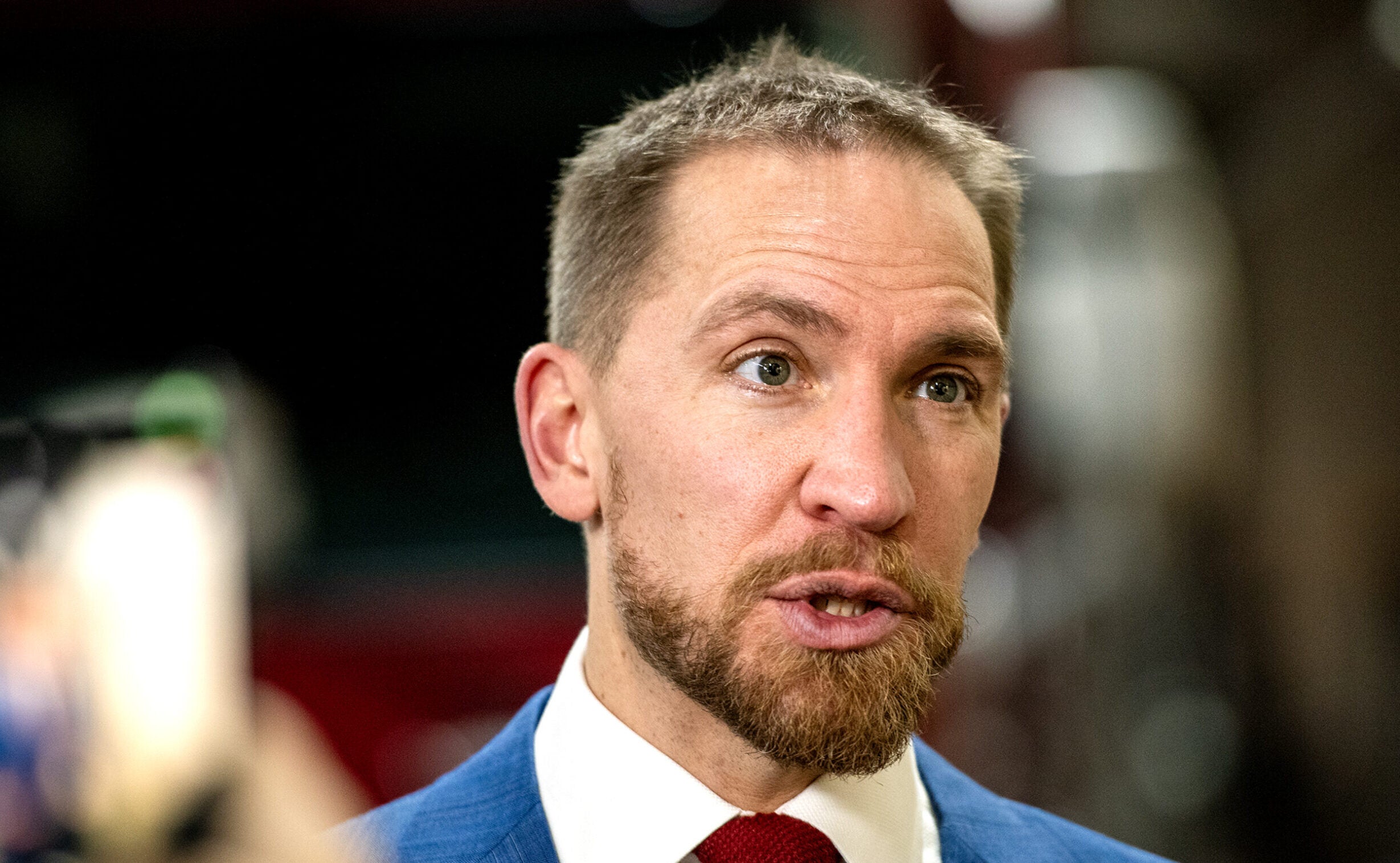When three school board members in Oconomowoc resigned together on Monday, it wasn’t solely because of board disputes over COVID-19.
Kim Herro, Rick Grothaus and Dan Raasch had been trying to change the board’s approach to governance and leadership, which they felt was toxic and made it impossible to collaboratively work on solutions, for over a year.
COVID-19, though, lit a match under the existing tensions and “consumed everything,” said Grothaus.
News with a little more humanity
WPR’s “Wisconsin Today” newsletter keeps you connected to the state you love without feeling overwhelmed. No paywall. No agenda. No corporate filter.
In August 2020, five of the seven board members voted to start the school year with a combination of virtual and in-person learning.
“It created immediate, aggressive reactions, not only by those two board members, but also a faction of the community that they were aligned with,” said Grothaus. “That began a tremendous attack on the board at that point about not having the kids full five days a week face-to-face, back in the schools.”
Community members launched a recall effort against three of the board members who voted for hybrid learning, including Herro. While Herro, who co-owns a manufacturing business, said she’s used to discord and disrespect as a woman in a male-dominated workforce, the onslaught of anger directed at her and other members was staggering.
“I had people calling me up and screaming at me, people that have known me almost my whole life, parents calling up and saying ‘You are making my kids wear masks, you’re doing hybrid, you’re bad people,’” she said.
School board members around the state who supported phased returns to the classroom and disease mitigation efforts like masks and social distancing have faced vitriolic school board meetings, recall attempts, election challenges and threats over the past 18 months.
Now, as COVID-19 is again surging around the state and hitting kids harder, many boards aren’t putting any mask requirements or precautions into place, to the distress of some parents who are worried their kids will get sick — and despite clear guidance from state and federal agencies that say universal masking is the best way to keep students safe and prevent schools from having to shut down.
“I was the board president during Act 10, so I understand a contentious audience, but this took it to a whole other level,” said Terri Phillips, executive director of the Southeastern Wisconsin Schools Alliance and a former school board member. “They can make no one happy.”
Losing Board Members In Elections And Resignations
Phillips saw 10 of her members removed in April’s school board elections, and she said many felt targeted because of their support for phased reopening, virtual options and disease-mitigation strategies. One of them was Juliet Steitzer, whose loss in Oconomowoc tipped the balance of power, setting the stage for the later resignations.
“They were shooting for her, there was a bullseye on her back,” said Herro. “When Juliet lost her seat, then we lost the majority, and once we lost the majority, the culture became caustic.”
Kim Kaukl, president of the Wisconsin Rural Schools Alliance, said his member districts mostly opened fully in-person right away last school year largely because limited access to the internet meant virtual learning wasn’t feasible. By following the Centers for Disease Control and Prevention’s guidelines around wearing masks, washing hands and social distancing, he said most were able to remain open all school year.
This year, though, board meetings have gotten tense, and a combination of public pressure and district politics mean many won’t put those precautions in place. Kaukl worries that in addition to the health impacts to kids and staff, the vicious disagreements and overriding of best practices around health will drive out the people who keep schools up and running.
“If we really start making things contentious, people are going to walk away and go, ‘I can’t take this anymore,’” he said. “We’re losing some really good people because of the contentiousness, and I’m concerned that we may lose some more teachers in the process, or more administrators, that we already know we have a shortage of.“
School Boards Have Dealt With Controversy Before
In previous decades, concerns about the teaching of sex education and evolution, as well as issues like school vouchers, have prompted angry public discourse and division among school board members.
“Anytime you try to make a change — we went to block scheduling, we might have done a little grading change — your boardroom fills,” said Phillips. “This feels different.”
Michael Ford, a professor of public administration at the University of Wisconsin-Oshkosh and a member of the Oshkosh City Council, said there’s a concept called “school board capture” that refers to boards being overtaken by interest groups — a union, for example, or particular business interests. He said what boards are seeing with COVID-19 disputes is similar, but with a key difference.
“It’s not a specific group that’s necessarily capturing the board, but it’s the ideological conflict itself that’s capturing the board,” he said. “We have in the past seen national issues bleed into local government issues, but now we’re seeing a more sustained effort, and a more explicitly ideologically motivated effort, that’s all-encompassing.”
Ford said conflict in school boards isn’t a bad thing, but it becomes a problem when people are so dug in on their beliefs that they can’t find compromise, or even have productive discussions.
“You want conflict on a governing board, it brings more voices to the table and it can lead to a solution that can be supported by even a divided group,” he said. “But where you start off with the entrenched ideological conflict, that’s where it’s just destructive — it makes governing impossible.”
Dan Raasch, one of the Oconomowoc board members who resigned, said the group made their decision to quit the board entirely because they didn’t feel like they had any options left — and they wanted to shock the community into paying attention to the ways he said their school board wasn’t working in the community’s best interest.
“We have gone as far as we could to try to have a board working together, and a board that would work with the administration as a team effort,” he said. “If people step forward — and I’m very hopeful that there’s enough good people out there that will do that — then the good quality work for kids can continue. And if not, well, then this is the board the community wants.”
School Boards’ Roles — And Their Limits
Boiling tensions are exacerbated by the structure of school boards themselves, said Dan Rossmiller, director of government relations at the Wisconsin Association of School Boards. With the requirements to give ample notice before bringing up issues, only being able to vote on items listed in their agenda, and meetings that typically occur only once a month, they’re hamstrung from acting quickly — which could get frustrating when the understanding of COVID-19, and the disease itself, was rapidly evolving.
“School boards are not, under the laws and procedures they’re set up to follow, very well-equipped to deal with hot-button, controversial issues,” said Rossmiller. “I think a lot of members of the public don’t understand that.”
Ford said there’s also been a blurring between the district administration’s role and the role of school board members. Boards are set up to handle policy issues — like setting the annual budget — while school officials are typically tasked with day-to-day operations, making decisions based on what they’re seeing in classrooms and running them by the board for approval as needed.
Because of the contentiousness around COVID-19, Ford said things that would ordinarily fall in that “operational” category are instead being decided at the board level — like mask requirements.
“I do think there’s been this public expectation around COVID that we want these school board officials to manage the day-to-day,” he said. “The main qualification of a school board member — and I say this as a local elected official — is you got one more vote than the other person. You’re not an expert on everything, you’re not there to manage the day-to-day operations of the district.”
The Cost To Kids
In May, after Gov. Tony Evers’ statewide mask mandate was overturned, the Oconomowoc school board took up the issue. A majority voted to keep requiring masks indoors through the end of the year, though kids could ditch them when they were outside.
Then, according to the resigning members, another board member told parents they could claim a religious exemption to allow their kids to go mask-free.
“The kids and the teachers had been doing a marvelous job throughout the year dealing with the masks,” said Grothaus. “The kids recognized that this was an important part of them staying healthy, because they didn’t want to miss their sports and their other activities and school, they didn’t want to miss the end of the year activities.”
After the board meeting, the district immediately began receiving dozens of requests for religious exemptions, which Grothaus said completely undermined the teachers’ authority.
Kim Kaukl, of the Wisconsin Rural Schools Alliance, said he got frustrated watching school board meetings where adults talked about what they thought was best for students, but didn’t always listen to the students themselves.
“We’ve got some young people, students who have gotten up and spoken in front of the board on the importance of being in school face-to-face, and then you have adults who are bullying them and cheering them,” he said. “It’s like, who’s the adult here?”
Wisconsin Public Radio, © Copyright 2025, Board of Regents of the University of Wisconsin System and Wisconsin Educational Communications Board.

